Many people do not realize how common opioid use disorders are. On top of that, they do not appreciate all of the impacts that these disorders have. More than 1.2 million Americans currently receive some kind of medication-assisted treatment for an opioid use disorder.
No matter what the situation is, opioid use disorder can be difficult to overcome. Some people struggle with opioid use disorder even more because they do not appreciate all of the effects that it can have. Better understanding the impact of opioid use disorder leads to a clearer picture of the situation and can help people find the motivation they need to overcome opioid use disorder.
So how exactly does opioid use disorder affect the patient? How does it affect their family? Read on to learn all about the most important things to understand about the effects that opioid use disorder can have!
Opioid Use Disorder Can Affect Your Priorities
When people are prescribed opioid medication, they often cannot imagine allowing opioids to affect their families. The fact that signs of opiate addiction eventually lead to negative consequences for their family is a sign of how much they can change a person’s priorities.
Unfortunately, that is the nature of addictive substances. They become more and more important to the people who use them. Unless that trend is stopped, eventually, they become more important than family concerns, at least in isolated incidents.
People want many different things. But whatever they want, opioid use has the potential to relegate those desires and dreams to 2nd place. As opiate US opioid use disorder changes someone’s priorities, they can almost stop recognizing themselves.
After all, if they think of themselves as somebody who values their health, their family, and their dreams, they may not recognize the person who sometimes behaves as if nothing is more important than the opioids they are struggling with.
Opioid Use Disorder Can Affect Your Health
Of course, opioid relapse and addiction can also affect the individual’s health. People can become psychologically and even chemically dependent on opioids. The end result is that their body suffers symptoms of withdrawal when they are not on opioids.
Unfortunately, staying on opioids forever does not eliminate health problems. In fact, it causes new ones.
Excessive use of opioids can cause nausea, vomiting, and constipation. Abuse of opioids can also lead to respiratory depression.
Unfortunately, this leaves people with opioid use disorder in a double bind. If they keep using opioids, they will suffer these side effects. If they stop using opioids, they will suffer the symptoms of withdrawal.
Fortunately, medically supervised withdrawal can somewhat alleviate the symptom of withdrawal. It leads to a path out of opioid use. Eventually, people can return to a state of normal health.
Opioid Use Disorder Can Break Down Trust
We already discussed how opioid used disorder can lead to a change in priorities. Unfortunately, that change in priorities eventually becomes more and more obvious. When a family sees how important opioid use can be to people suffering from opioid use disorder, it can lead them to wonder what they would sacrifice for opioid use.
Unfortunately, these concerns are sometimes justified. What starts with a diagnosis of OUD can eventually develop into a pattern of misbehavior. That behavior sometimes includes stealing and lying.
It is extremely difficult to rebuild trust once it has been broken. Some family members hold on to trust longer than others. But when people suffering from opioid use disorder continue a pattern of deception, they can eventually lose the trust of everyone in their life.
Opioid Use Disorder Can Cause Financial Difficulties
Of course, these kinds of behaviors affect more than trust. Some people struggling with opioid use disorder belong to families that also struggle with financial concerns. Opioid use disorder can make these concerns develop into catastrophes.
This is one of the reasons that opioid use disorder can so deeply affect trust. When a family is struggling financially, the idea that a member of the family would spend so much money on opioids can make it hard to trust them.
Eventually, financial difficulties develop into other problems. Members of the family might struggle to get medicine if they do not have access to money because somebody spent it on opioids. In some cases, families might even struggle with maintaining their basic lifestyle or acquiring food.
Opioid Use Disorder Can Spread
Another way that opioid use disorder can affect families is by spreading. If nobody in a family has ever seen opioids, they are somewhat unlikely to think of using them to cope with the difficulties of life. However, if a member of the family develops opioid use disorder, it means that everyone in the family thinks about opioids with some frequency.
So what happens when somebody goes through an especially difficult time in their life? They might think about how opioids can relieve pain, and they might think about how they know someone who regularly uses them in abusive ways.
The end result can be that other members of the family also develop opioid use disorder.
Understand the Impact of Opioid Use Disorder
We hope learning about how opioid use disorder affects patients and families has been helpful for you. Many people struggle with opioid use without appreciating the magnitude of its effect on themselves or their families. Overcoming opioid use disorder is hard enough without dealing with an incomplete picture of the situation.
The better you understand opioid use disorder and its impacts, the better able you will be to appropriately respond to it. To learn more about the impacts of opioid use disorder or to speak with experts who can help you overcome a disorder, feel free to reach out and get in touch with us here at any time!


